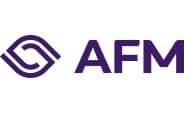
Discussion paper on the role of disclosures
The Dutch Authority for the Financial Markets (AFM) has written a discussion paper on the role of mandatory precontractual disclosures required by law in consumer protection. These documents are often so technical and detailed that they are difficult to understand for consumers. In this paper, we suggest that other instruments can also be used to protect consumers. The use of such other instruments will require the application of insights into the behaviour of consumers and markets. In the context of evaluations and legislative processes, European institutions are also looking at the effectiveness of the current legal requirements for mandatory precontractual disclosures.
Disclosure documents should help to make sensible decisions
By law, firms are required to provide specific information documents before entering into agreements with consumers. These mandatory consumer disclosures provide essential information on matters such as the characteristics, costs and/or risks of financial products and services.
Disclosures are often necessary and can have a disciplinary effect on firms providing financial products and services. The AFM has observed that, thanks to the legal transparency requirements, such information documents can contribute to better products and services and thus better protection of consumers. In addition, parties such as advisers and comparison websites can use these information documents to help consumers make informed decisions.
However, research has shown that consumers often do not read or do not understand information documents. Consumers do not read information documents due to various reasons, such as not noticing the document among the other information or receiving it at an inconvenient time. When consumers do read the information document, they often find it difficult to understand or difficult to apply to their own situation. Therefore, the objectives that policymakers aimed for through mandatory consumer disclosure documents are often not achieved. These objectives include ensuring that consumers gain insight into the characteristics of products and services and are able to make informed decisions.
High expectations among policymakers
Policymakers have high expectations for the impact of information documents. Given the increasing integration of the European financial markets, European rules ensure that consumers in all EU Member States receive the same information when they make enquires about and buy financial products and services anywhere in the EU. The mandatory information documents are meant to help with this. However, while policymakers assume that consumers will use information documents to make sensible decisions, this is often not the case. Consumers often base their decisions on other factors, such as recommendations by friends or influencers, or intuition.
Apply the instrument best suited to the objective
To ensure optimal consumer protection, the AFM advises policymakers to carefully consider which policy instruments are best suited to achieving a specific objective. This will require the application of insights into how consumers and markets behave. For example, firms can apply consumer behaviour insights to design the consumer’s choice environment in a way that contributes to sensible decisions, or they can make their information documents more effective. The AFM encourages firms to measure the contribution that policy instruments make to achieving the objectives. Based on this, it may emerge that other measures are more effective to achieve the envisaged objective, such as protecting consumers. In some cases, measures such as product governance or a ban on commissions for specific products or services can be more effective than disclosures.
Information document should be usable for consumers
When policymakers do decide to introduce a mandatory information document (possibly alongside other policy instruments), insights from communication sciences can be used to make the document usable for consumers. In this paper, we therefore suggest design tools that can help to offer consumers insight and enable them to make meaningful comparisons
Journalists may contact Yolanda Bieckmann, AFM spokesperson, on +31 (0)6 3177 7686 or at yolanda.bieckmann@afm.nl.Contact for this article

Would you like to receive the latest news from AFM?
Subscribe to our newsletter, we will keep you up-to-date.